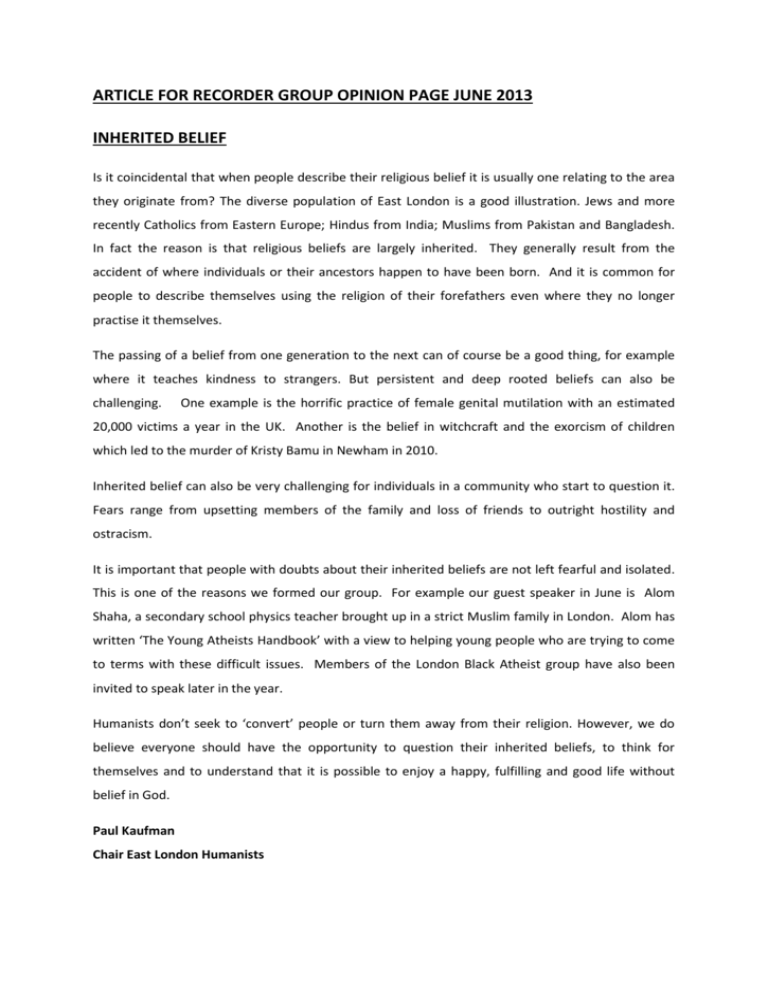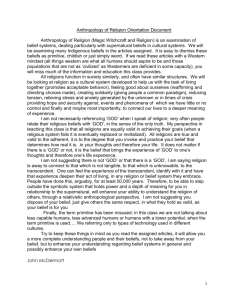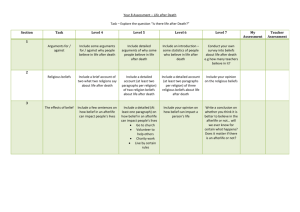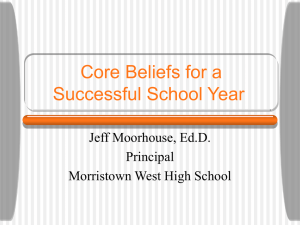Inherited beliefs - East London Humanists
advertisement

ARTICLE FOR RECORDER GROUP OPINION PAGE JUNE 2013 INHERITED BELIEF Is it coincidental that when people describe their religious belief it is usually one relating to the area they originate from? The diverse population of East London is a good illustration. Jews and more recently Catholics from Eastern Europe; Hindus from India; Muslims from Pakistan and Bangladesh. In fact the reason is that religious beliefs are largely inherited. They generally result from the accident of where individuals or their ancestors happen to have been born. And it is common for people to describe themselves using the religion of their forefathers even where they no longer practise it themselves. The passing of a belief from one generation to the next can of course be a good thing, for example where it teaches kindness to strangers. But persistent and deep rooted beliefs can also be challenging. One example is the horrific practice of female genital mutilation with an estimated 20,000 victims a year in the UK. Another is the belief in witchcraft and the exorcism of children which led to the murder of Kristy Bamu in Newham in 2010. Inherited belief can also be very challenging for individuals in a community who start to question it. Fears range from upsetting members of the family and loss of friends to outright hostility and ostracism. It is important that people with doubts about their inherited beliefs are not left fearful and isolated. This is one of the reasons we formed our group. For example our guest speaker in June is Alom Shaha, a secondary school physics teacher brought up in a strict Muslim family in London. Alom has written ‘The Young Atheists Handbook’ with a view to helping young people who are trying to come to terms with these difficult issues. Members of the London Black Atheist group have also been invited to speak later in the year. Humanists don’t seek to ‘convert’ people or turn them away from their religion. However, we do believe everyone should have the opportunity to question their inherited beliefs, to think for themselves and to understand that it is possible to enjoy a happy, fulfilling and good life without belief in God. Paul Kaufman Chair East London Humanists











